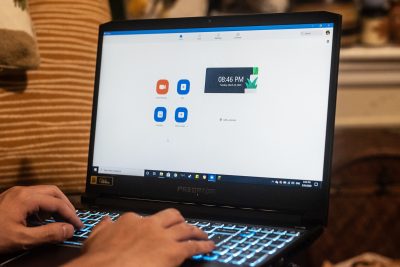
A day after remote learning had begun for the Boston University community, President Robert Brown sent out an email announcing that classes for the remainder of the semester would be conducted online.
Now, faculty must work to keep students engaged in learning while navigating the challenges of adapting their courses to an online landscape.
Jean Morrison, university provost and chief academic advisor, said that the current situation and the need for BU to move completely into remote learning was “unimaginable” just a few weeks ago.
“It happened very quickly,” Morrison said. “As the seriousness and the rate at which the coronavirus was spreading became clear to us we had to move extremely quickly.”
Courses instructors plan to teach online usually consist of up to nine months of planning to develop a curriculum, Morrison said. BU faculty had about two weeks to prepare for a potential transition into teaching online.
The exact logistics for the remainder of the semester are still being worked out, including whether or not the university will institute a pass/fail option for students. According to Morrison, deans from every college at BU have been gauging faculty on how they feel about various pass/fail options.
Morrison said that the deans will bring their recommendations to her this Wednesday, and a finalized plan will most likely be announced next week.
Ruth Debrot, a lecturer in music education in the College of Fine Arts, said that while some aspects of her choral methods course have changed, such as the ability for her students to observe public school students in the area perform, she has been able to maintain the general structure of her class remotely.
“Last week was very exploratory,” Debrot said. “It was essentially getting the students situated online and making sure that everything worked first. I redesigned the syllabus for the rest of the term on the premise that we can essentially do some of the same things online that we can do in the classroom. It just looks different.”
Aspects of in-person learning that are difficult to replicate remotely, Morrison said, are laboratory sections and other hands-on projects or assignments that require students to access equipment provided by the university
“It’s more challenging,” Morrison said. “But people are doing interesting things, you know, people are finding ways to do laboratory demonstrations where you might have done something hands-on.”
James Lawford Anderson, a professor of earth science in the College of Arts and Sciences, said that the widespread use of remote learning has opened up discussions about how hands-on labs would work.
“There’s a lot of discussion on [how to adapt labs] by the professional community,” Anderson said. “Teachers at all levels, K-12 through colleges and universities, and conversations about how to do this are being shared. And this sharing is global. So there’s a lot of resources out there.”
A recent lab session one of his classes completed that was meant to have students use microscopes to analyze dead rocks was done by having the course’s teaching fellow and an undergraduate learning assistant find pictures of what students would have seen through the microscopes and discussing the pictures with students.
Will Lau, a sophomore in BU’s Seven-Year Liberal Arts/Medical Education Program, said for his chemistry lab session, students are provided with all the data they need beforehand and are shown a video of their teaching fellows completing the lab.
While they are still able to complete the lab reports, Lau said the main goal of lab sessions is to familiarize oneself with the proper equipment and procedure — something that is lost in remote learning.
“Without being in [the] lab physically, ourselves, we don’t really gain that experience,” Lau said. “We’re just watching someone else do it.”
Another potential downside that could result from remote learning is the ability for students to cheat or use notes on exams or assignments that would otherwise be monitored.
BU’s various schools and colleges are looking into different approaches to handle academic integrity, Morrison said, ranging from proctored exams via Zoom to simply using the academic honor system.
“There are complications with online education that you don’t have when everybody’s sitting in the same room and the professor can be physically present and overseeing the group,” Morrison said.
Caitlin Dalton, a professor in the CAS writing program, said that the move to remote learning has prompted her to make some changes to her class syllabi, which include extending deadlines and future modifications to group assignments.
Dalton said while she didn’t initially have high hopes for the situation, some of Zoom’s capabilities, such as screen sharing and breakout rooms, are helpful in trying to mimic the classroom. She also said she recognizes the possibility of students becoming more easily distracted with the ability to mute their microphones or turn off their cameras.
“That’s just part of our reality, people will get distracted. I tend to think that that wasn’t even my role when I’m in person.” Dalton said. “I actually think my students want to focus because for the most part, most of them want to not have not be distracted by all the chaos in the world and have this as … something structured.”
While the Spring semester has changed drastically, Debrot said she is confident students will still be able to learn what their classes initially intended for them.
“I have never experienced anything like this. It was very unexpected. But now that I’m in the situation and had some time to process what is happening and what has happened, I feel optimistic,” Debrot said. “It’s been affirming of how I do things in the classroom.”



























































































































Mr. West • Mar 25, 2020 at 3:53 pm
I wish they had online lectures when I broke my jaw